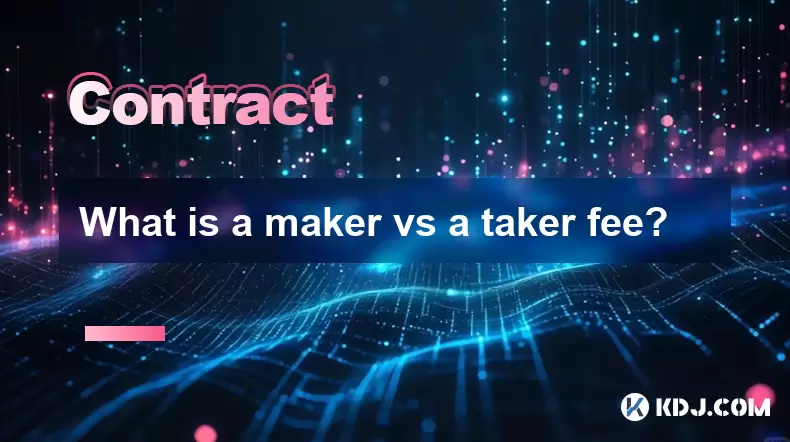-
 Bitcoin
Bitcoin $118300
-1.72% -
 Ethereum
Ethereum $3591
-0.69% -
 XRP
XRP $3.478
-3.53% -
 Tether USDt
Tether USDt $1.001
-0.01% -
 BNB
BNB $737.7
-0.54% -
 Solana
Solana $177.3
-2.40% -
 USDC
USDC $0.9999
-0.01% -
 Dogecoin
Dogecoin $0.2538
7.04% -
 TRON
TRON $0.3256
-0.85% -
 Cardano
Cardano $0.8332
-3.48% -
 Hyperliquid
Hyperliquid $44.80
-3.30% -
 Stellar
Stellar $0.4672
-6.09% -
 Sui
Sui $3.828
-5.98% -
 Chainlink
Chainlink $18.15
-3.41% -
 Hedera
Hedera $0.2655
-7.16% -
 Bitcoin Cash
Bitcoin Cash $517.5
-0.64% -
 Avalanche
Avalanche $23.89
-2.37% -
 Shiba Inu
Shiba Inu $0.00001519
-0.45% -
 UNUS SED LEO
UNUS SED LEO $8.973
0.13% -
 Toncoin
Toncoin $3.211
-2.54% -
 Litecoin
Litecoin $103.5
-3.58% -
 Polkadot
Polkadot $4.313
-3.90% -
 Uniswap
Uniswap $10.31
0.67% -
 Monero
Monero $325.4
-2.88% -
 Bitget Token
Bitget Token $5.049
3.51% -
 Ethena USDe
Ethena USDe $1.002
0.04% -
 Pepe
Pepe $0.00001346
-2.96% -
 Dai
Dai $0.9999
-0.02% -
 Aave
Aave $322.1
-2.93% -
 Bittensor
Bittensor $411.9
-4.70%
Can I trade Bitcoin contracts with no KYC?
Some platforms allow Bitcoin contract trading without KYC, but with limits on leverage, withdrawals, and features.
Jul 19, 2025 at 01:07 pm

Understanding Bitcoin Contracts and Their Relevance
Bitcoin contracts refer to financial instruments that allow traders to speculate on the price movements of Bitcoin without owning the actual asset. These contracts can take the form of futures, options, or perpetual contracts, and are commonly offered by cryptocurrency derivatives exchanges. The appeal of trading Bitcoin contracts lies in their leverage capabilities, which allow traders to amplify both gains and risks. However, a critical aspect of accessing these trading platforms is the requirement for Know Your Customer (KYC) procedures, which are regulatory protocols designed to prevent fraud, money laundering, and other illicit activities.
Many traders are curious about whether they can engage in Bitcoin contract trading without undergoing KYC verification. This question is especially relevant in regions with strict financial regulations or for users who value privacy and anonymity. The short answer is: it is possible, but with limitations. Some platforms do allow limited trading without KYC, but they often restrict features such as leverage, withdrawal amounts, and access to advanced tools.
Platforms That Allow Bitcoin Contract Trading Without KYC
Several cryptocurrency exchanges and derivatives platforms offer Bitcoin contract trading without mandatory KYC procedures. These platforms typically allow users to trade with limited account privileges until they complete verification. Examples include:
- Bybit – Allows limited access to futures trading without KYC, but with caps on leverage and position sizes.
- BitMEX – Historically allowed users to trade without KYC, although recent regulatory pressures have led to changes in their policies.
- Deribit – Requires KYC for full access, but may allow small trades without verification.
- OKX – Offers limited derivatives trading without KYC, though users are encouraged to verify for enhanced features.
It’s important to note that these platforms may require KYC for withdrawals or large trades, and some jurisdictions may enforce KYC compliance regardless of platform policies. Users should always check the specific terms and conditions of the platform they intend to use.
How to Trade Bitcoin Contracts Without KYC: A Step-by-Step Guide
If you're interested in trading Bitcoin contracts without undergoing KYC, here is a detailed guide to help you navigate the process:
- Create an account on a platform that allows limited derivatives trading without KYC.
- Deposit funds into your account using a supported cryptocurrency or payment method.
- Navigate to the derivatives section and select the type of Bitcoin contract you want to trade (e.g., futures, perpetual contracts).
- Set your leverage – Note that unverified accounts may have lower leverage limits (e.g., 10x instead of 100x).
- Open a position by choosing long or short based on your market prediction.
- Monitor your trade and set stop-loss or take-profit orders to manage risk.
- Close your position when you're satisfied with the outcome or when your target is reached.
While this process is relatively straightforward, keep in mind that trading without KYC may limit your ability to scale or withdraw profits. Always ensure you understand the platform’s restrictions before committing funds.
Privacy Considerations and Risks
Trading Bitcoin contracts without KYC can offer a degree of privacy, but it also comes with potential risks. Platforms that do not enforce KYC may be more susceptible to scams, hacking, or regulatory shutdowns. Additionally, unverified accounts often lack access to customer support and dispute resolution mechanisms.
Users should also be aware that even if a platform does not require KYC, their transactions may still be traceable through blockchain analysis. This means that true anonymity is difficult to achieve in the crypto space. For those prioritizing privacy, using privacy-focused wallets or coins like Monero (XMR) might be a complementary strategy, though it doesn’t apply directly to Bitcoin contract trading.
Legal and Regulatory Implications
The legality of trading Bitcoin contracts without KYC varies by jurisdiction. In some countries, such as the United States, derivatives trading is heavily regulated, and platforms that allow unverified trading may be operating in violation of local laws. In contrast, jurisdictions like Seychelles or Malta have more lenient regulations, allowing certain platforms to operate without strict KYC requirements.
Users must be aware of their local laws and understand that trading on non-compliant platforms may expose them to legal risks. It’s also worth noting that regulatory environments are evolving, and platforms that currently allow no-KYC trading may change their policies in response to legal pressures.
Frequently Asked Questions
Q: Can I trade Bitcoin contracts anonymously?
A: While some platforms allow limited trading without KYC, achieving complete anonymity is difficult due to blockchain transparency and potential regulatory requirements.
Q: Are there fees for trading Bitcoin contracts without KYC?
A: Yes, standard trading fees apply regardless of KYC status. However, unverified accounts may face additional restrictions or higher fees for certain services.
Q: Can I withdraw profits from Bitcoin contract trades without KYC?
A: Most platforms require KYC verification before allowing withdrawals, especially for significant amounts. Unverified accounts may have daily or monthly withdrawal limits.
Q: What happens if a no-KYC platform gets shut down?
A: Users may lose access to their funds or face difficulties recovering assets. It’s essential to use reputable platforms and consider KYC verification for long-term security.
Disclaimer:info@kdj.com
The information provided is not trading advice. kdj.com does not assume any responsibility for any investments made based on the information provided in this article. Cryptocurrencies are highly volatile and it is highly recommended that you invest with caution after thorough research!
If you believe that the content used on this website infringes your copyright, please contact us immediately (info@kdj.com) and we will delete it promptly.
- XRP Mining for Passive Wealth: Is It the 2025 Crypto Gold Rush?
- 2025-07-19 22:50:12
- Aptos Price Analysis: Bullish Momentum Building?
- 2025-07-19 23:30:12
- Bitcoin, XRP, XYZVerse: Crypto's Highs, Community Dreams, and Meme Coin Mania
- 2025-07-19 23:30:12
- India's Wealthy Embrace Crypto: A New Era of Digital Investment
- 2025-07-19 22:30:12
- XRPL's TVL Surge: DeXRP's Ambitious DEX and SUI's Rise
- 2025-07-19 22:50:12
- ARB Price Rally: Breaking Free from the Descending Channel
- 2025-07-19 23:50:12
Related knowledge

What is a maker vs a taker fee?
Jul 19,2025 at 01:14am
Understanding the Basics of Cryptocurrency Exchange FeesIn the world of cryptocurrency trading, maker vs taker fees are a fundamental concept that eve...

How to analyze Bitcoin futures data from CME?
Jul 19,2025 at 05:22pm
Understanding Bitcoin Futures on CMEBitcoin futures on the CME Group (Chicago Mercantile Exchange) represent a regulated financial instrument that all...

How to understand the liquidation price?
Jul 19,2025 at 10:00pm
What Is a Liquidation Price in Cryptocurrency Trading?In the realm of cryptocurrency futures and margin trading, the liquidation price refers to the s...

What is time in force (GTC, IOC, FOK)?
Jul 19,2025 at 08:57am
Understanding Time in Force in Cryptocurrency TradingIn the world of cryptocurrency trading, the Time in Force (TIF) is a crucial parameter that deter...

What is a partial liquidation?
Jul 19,2025 at 01:49am
Understanding the Basics of Partial LiquidationIn the world of cryptocurrency trading, especially within leveraged positions, partial liquidation refe...

How to find good entry and exit points for Bitcoin futures?
Jul 19,2025 at 05:14pm
Understanding Bitcoin Futures and Their Unique CharacteristicsBitcoin futures are derivative contracts that allow traders to speculate on the future p...

What is a maker vs a taker fee?
Jul 19,2025 at 01:14am
Understanding the Basics of Cryptocurrency Exchange FeesIn the world of cryptocurrency trading, maker vs taker fees are a fundamental concept that eve...

How to analyze Bitcoin futures data from CME?
Jul 19,2025 at 05:22pm
Understanding Bitcoin Futures on CMEBitcoin futures on the CME Group (Chicago Mercantile Exchange) represent a regulated financial instrument that all...

How to understand the liquidation price?
Jul 19,2025 at 10:00pm
What Is a Liquidation Price in Cryptocurrency Trading?In the realm of cryptocurrency futures and margin trading, the liquidation price refers to the s...

What is time in force (GTC, IOC, FOK)?
Jul 19,2025 at 08:57am
Understanding Time in Force in Cryptocurrency TradingIn the world of cryptocurrency trading, the Time in Force (TIF) is a crucial parameter that deter...

What is a partial liquidation?
Jul 19,2025 at 01:49am
Understanding the Basics of Partial LiquidationIn the world of cryptocurrency trading, especially within leveraged positions, partial liquidation refe...

How to find good entry and exit points for Bitcoin futures?
Jul 19,2025 at 05:14pm
Understanding Bitcoin Futures and Their Unique CharacteristicsBitcoin futures are derivative contracts that allow traders to speculate on the future p...
See all articles

























































































